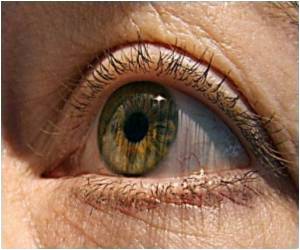
“Our results suggest that the response works as a vicious cycle, with white blood cells the major culprit,” Matt says. “Upon inflammation or damage to the eyes, the immune system kicks in and white blood cells, particularly macrophages, are recruited to clean up the debris or dead cells.”
“Under healthy conditions, the white blood cells finish their task and leave the macula. However, in cases of MD, the macrophages call in other inflammatory proteins and combine with them. This then triggers a fresh cycle in which they attack healthy vision cells.”
The finding was made using albino rats with a low tolerance for excessive light, enabling the researchers to study the immune process in action.
“The immune response can be provoked by signals such as those from drusen – white deposits in the inner layer of the eye – or vision cells that have died naturally or as a result of inflammation. These become cell debris which triggers the immune reaction.”
“Macular degeneration is a long term and very gradual process, from years of accumulated damage,” he says. “It is similar to the kind of central nervous system damage that we see in cases of Alzheimer’s disease and cerebral haemorrhage. Our photoreceptors die regularly – it is a normal occurrence, and we always have cell debris in our eyes. The problem is when the immune system starts to get out of control, which happens as you age - and that is why age is one of the biggest risk factors in MD.”
Advertisement
The best way to prevent MD at present, he says, is to prevent any unnecessary inflammation of the eyes.
Advertisement
wear sunglasses whenever we go out into sunny conditions or are exposed to bright light
minimise our long term exposure to excessive light
maintain an omega three-rich diet to minimise free radicals that can harm our bodies
exercise regularly to keep a normal level blood pressure and
avoid activities that weaken our immune system, such as smoking.”
“This research has given us broad snapshots of what goes on within the vision processes of the eye itself and allowed us to understand how age-related blindness develops. The next step is to track the inflammatory process in detail, with a view to interrupting it.”
Matt was awarded the prize for best student presentation at the annual Research School of Biology 2010 student conference for his presentation of this research.
style="mso-special-character: line-break">
Source-Medindia








